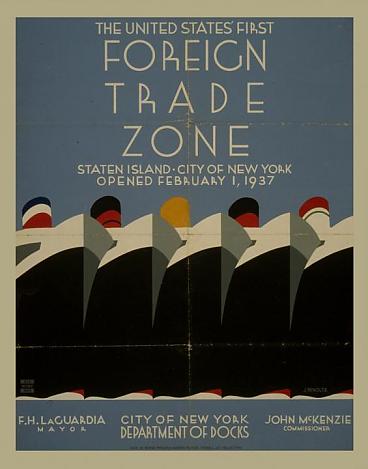Anne-Marie Mineur: If Malmström means what she says, she has to put an end to TTIP
Anne-Marie Mineur: If Malmström means what she says, she has to put an end to TTIP

European Commissioner Cecilia Malmström won’t give way to the Americans’ desire to lower our standards, and nor will she accept products on our market that fail to fulfil these standards. Malmström made these statements in response to last Monday’s TTIP leaks. If she’s speaking the truth, then it would be better if the Commission were to halt the negotiations. The question is, does Malmström have another agenda?
Barriers to trade must be removed in order to stimulate international trade. There are three ways to achieve this. Firstly, you can lower tariffs on imports. Between the European Union and the United States, these were already far from high, and the agreements which will lower them further can be fitted on to a single A4 sheet.
The second category of trade barrier is the kind that favours a country’s own products, or that erects explicit restrictions on foreign producers. The enormous agricultural subsidies received annually by European farmers, which amounted to €55 billion in 2014, or 40% of total EU expenditure, is an example of the former. The US Jones Act which since 1920 has reserved all economic activity relating to the shipping trade exclusively to American firms and American workers is an example of the latter. The chances of anything changing when it comes to these institutions are minimal.
What this trade treaty actually concerns are the ‘barriers to trade’ which aren’t really barriers to trade at all, but differences in regulation. These differences are fundamental. The American method of authorising products is guided by the principle of liability: any product may be sold until the courts determine that it’s harmful. In Europe the guiding rule is the precautionary principle, under which only products which are demonstrably safe are allowed on to the market. The result is massive differences in relation, for example, to cosmetics: the US has a list of eleven products which are banned, while the EU bans a total of 1377.
Commissioner Malmström states that she will not interfere with European standards: “no European trade agreement will ever lower our level of protection for consumers, food safety or the environment.” That may well be the EU’s approach in the negotiations, but it isn’t where the efforts of their American trade partners are directed. The leaked text, but also a letter from the United States Senate from last week, have shown that the American view is that the precautionary principle must be dropped. If Malmström sees that as taboo, then she’d better break the talks off. Yet there’s no sign whatsoever that she is considering doing so.
Given that the texts have now gone public, as well as the amount of attention the European Commission is paying to the overhaul of regulations under the REFIT programme, there seems to be something other than this going on. What appears to be the case is that the Commission is looking to use the TTIP treaty, as well as the Comprehensive Economic and Trade Agreement (CETA) with Canada, for purposes other than simply reducing trade restrictions. As Malmström isn’t prepared to undermine European achievements in the fields of consumer protection, food safety and environmental regulation, then she will have to opt instead for mutual recognition. There is no other choice possible. Every product that’s allowed on to the American market will then have to be allowed on to the European market.
The potato starch cooperative Avebé in Ter Apel in the north of the Netherlands is one group which has immediate concerns about this. It will be faced with competition from American products which not only enjoy enormous advantages of scale, but which also can also make use of genetically modified crops processed, moreover, using cheap shale gas. It will be impossible for Avebé to cope with such competition and the only question is how long one of the biggest employers in the province of Groningen will be able to stay in business. Jan Huitema, livestock farmer and MEP for the centre-right Dutch governing party the VVD, has already called for the adoption of the same farm animal welfare requirements as prevail in the United States, his aim being to prevent his sector from being outcompeted to the point of destruction by hormone-treated American cows. If the European Union fails to heed his call, then it will not be this sector alone, but all those which have to deal with the same kind of unfair competition from the US, which will in the end themselves demand that European standards be lowered. In this way, the European Commission will be handed its REFIT on a plate.
TTIP and CETA are in their essence not agreements aimed at the removal of barriers to trade, but at the undermining of European standards. Consumers, workers, animals and the environment will be the victims. The winners will be the same multinationals which took the initiative for this type of treaty. There is nothing wrong with promoting trade. But not at all costs, and certainly not at the cost of everything that we in Europe have achieved. If Malmström really wants to be tough, then she has to put a stop to the negotiations. If not, then we must force her to. I’m calling on everyone in the Netherlands, therefore, to sign the petition for a TTIP-referendum op www.ttip-referendum.nl. I hope that similar initiatives will be taken in other member states.
This opinion piece first appeared on the website Joop.nl
